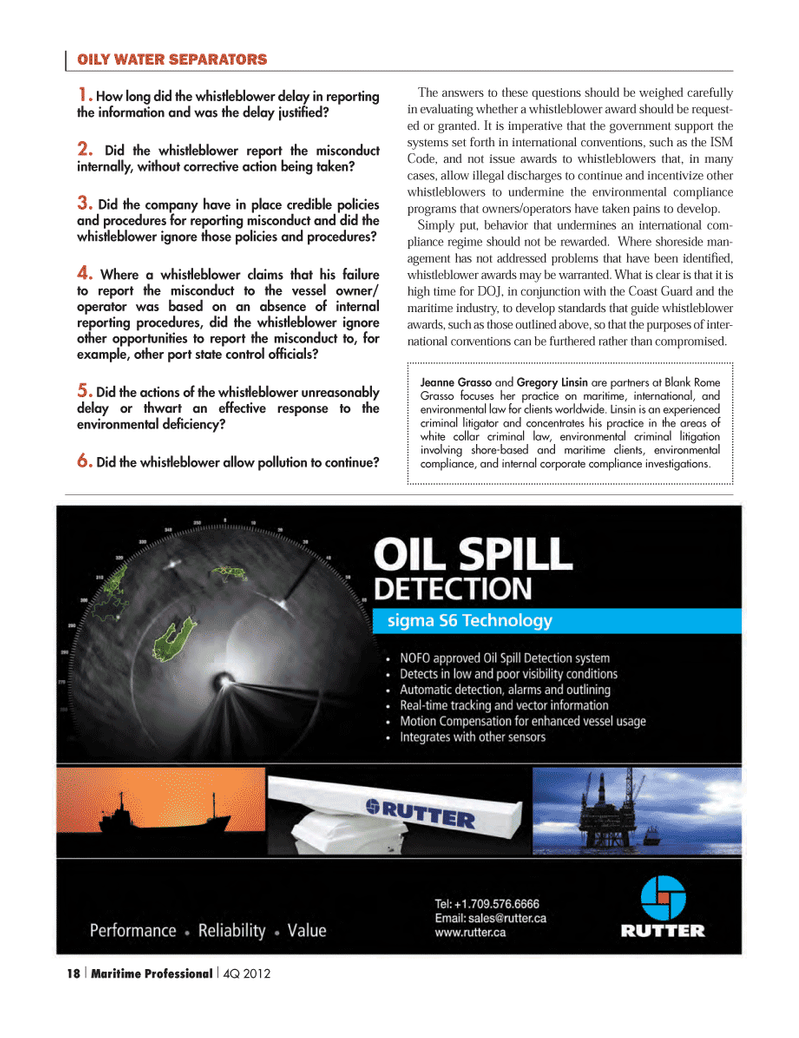
Page 18: of Maritime Logistics Professional Magazine (Q4 2012)
The Environment: Stewardship & Compliance
Read this page in Pdf, Flash or Html5 edition of Q4 2012 Maritime Logistics Professional Magazine
1. How long did the whistleblower delay in reporting the information and was the delay justiÞ ed? 2. Did the whistleblower report the misconduct internally, without corrective action being taken? 3. Did the company have in place credible policies and procedures for reporting misconduct and did the whistleblower ignore those policies and procedures?4. Where a whistleblower claims that his failure to report the misconduct to the vessel owner/operator was based on an absence of internal reporting procedures, did the whistleblower ignore other opportunities to report the misconduct to, for example, other port state control ofÞ cials?5. Did the actions of the whistleblower unreasonably delay or thwart an effective response to the environmental deÞ ciency? 6. Did the whistleblower allow pollution to continue?The answers to these questions should be weighed carefully in evaluating whether a whistleblower award should be request- ed or granted. It is imperative that the government support the systems set forth in international conventions, such as the ISM Code, and not issue awards to whistleblowers that, in many cases, allow illegal discharges to continue and incentivize other whistleblowers to undermine the environmental compliance programs that owners/operators have taken pains to develop. Simply put, behavior that undermines an international com- pliance regime should not be rewarded. Where shoreside man- agement has not addressed problems that have been identiÞ ed, whistleblower awards may be warranted. What is clear is that it is high time for DOJ, in conjunction with the Coast Guard and the maritime industry, to develop standards that guide whistleblower awards, such as those outlined above, so that the purposes of inter- national conventions can be furthered rather than compromised. OILY WATER SEPARATORS Jeanne Grasso and Gregory Linsin are partners at Blank Rome Grasso focuses her practice on maritime, international, and environmental law for clients worldwide. Linsin is an experienced criminal litigator and concentrates his practice in the areas of white collar criminal law, environmental criminal litigation involving shore-based and maritime clients, environmental compliance, and internal corporate compliance investigations. 18 | Maritime Professional | 4Q 2012MP #4 18-33.indd 18MP #4 18-33.indd 1811/12/2012 9:33:52 AM11/12/2012 9:33:52 AM

 17
17

 19
19
